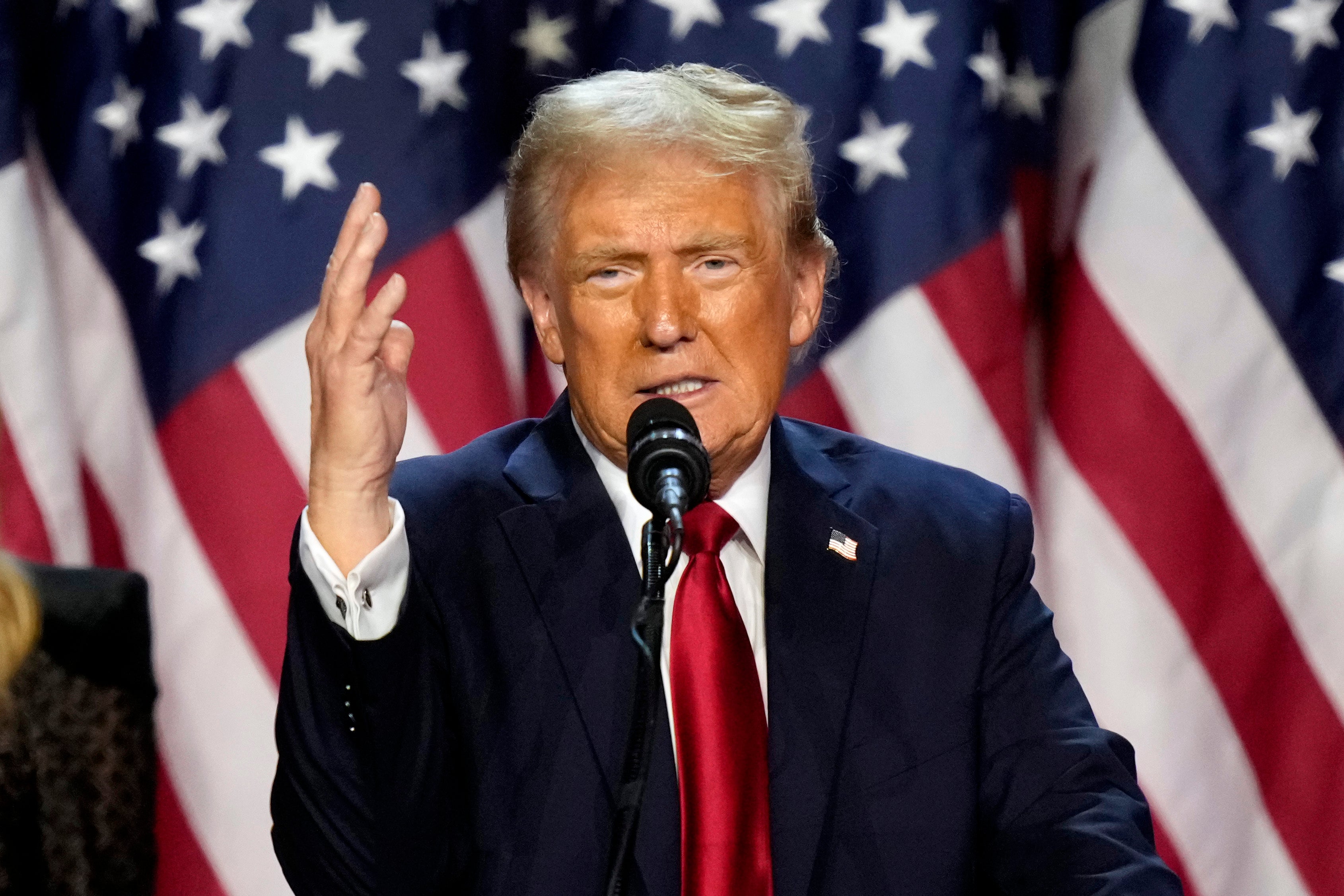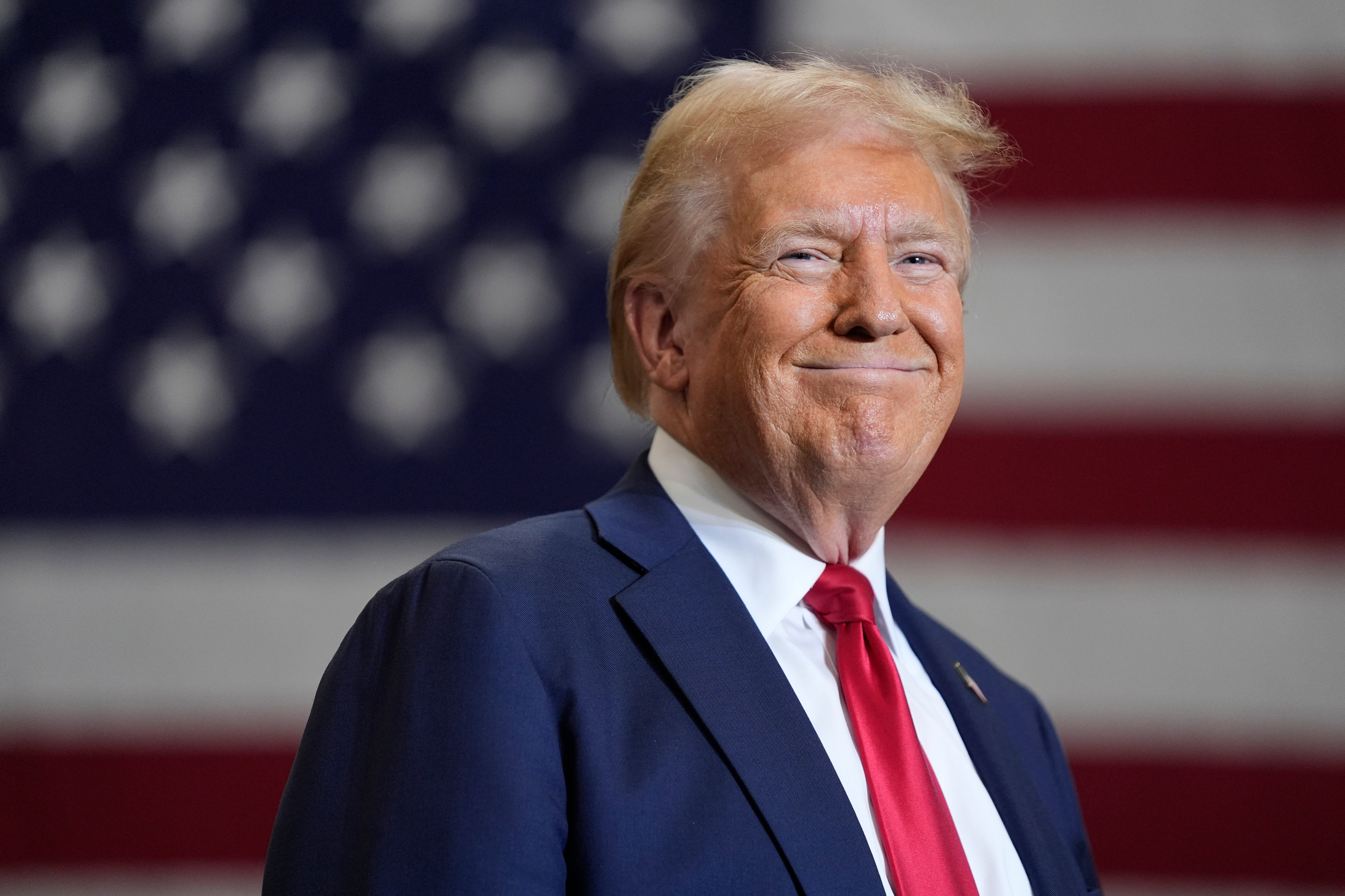What are Trump’s tariff plans and what could they mean for the UK?
The US is the UK’s largest export market for goods and services but, following the election result, the world’s largest economy will be reassessing its trade deals, writes Millie Cooke

Donald Trump’s election has sparked fears of a global trade war after his campaign pledge to impose levies of 10 to 20 per cent on all goods imported from US trading partners, and up to 60 per cent and 100 per cent for China and Mexico.
Mr Trump’s first term in office saw him clash with China which had growth impacts across the world’s more advanced economies. But this time around, there is the possibility of a renewed global trade war on an even bigger scale following increasingly protectionist rhetoric on the campaign trail.
How could tariffs impact the UK?
As well as being the world’s largest economy, the US is the UK’s largest export market for goods and services. If the president-elect were to impose 10 per cent tariffs on all goods imported from the UK, it’s very likely this would negatively impact economic growth.

New analysis from the University of Sussex’s Centre for Inclusive Trade Policy calculated Britain could face a £22bn hit to its exports if a blanket 20 per cent tariff was imposed on all imports into the US, with UK exports to the world falling by more than 2.6 per cent.
Goldman Sachs has already downgraded its forecast for the UK’s economic growth next year from 1.6 per cent to 1.4 per cent in light of Mr Trump’s election victory, while EU officials are anticipating a reduction in exports to the US of £125bn.
But it is not a done deal – there is still a possibility the UK could dodge tariffs.
Peggy Grande, a former political appointee in the last Trump administration, claimed the president-elect will target the European Union more significantly than Britain.
She told The Independent that Donald Trump is likely to give a “preferential trade deal to the UK”, saying he wants to see a “successful Brexit”.
Meanwhile, New Jersey governor Phil Murphy – a Democrat who said he has a “good relationship” with the president-elect – said his gut feeling is that Mr Trump will not impose tariffs on goods from allies like the UK.
“But if I’m China, I’m fastening my seatbelt right now,” he told Sky News.

However, former UK ambassador to Washington Kim Darroch said he thinks Mr Trump’s remarks on tariffs are “the exact opposite of a mere threat”, saying he is very likely to put the protectionist measures in place.
One option to avoid the crippling levies would be for the UK to strike a free trade deal with the US, something the UK has been pining after for years – but that in itself is likely to bring tough choices for the government.
What would a trade deal mean for the UK?
A free trade deal with the US is likely to come at the expense of UK agriculture, as one outcome of the deal could be that US producers flood the UK market with cheap food – undercutting UK farmers.
Writing in The Observer, Mr Darroch said he thinks a free trade agreement will be on offer from Mr Trump, but warned the primary US demand would be “unrestricted access to the UK market for the low-cost products of the US agricultural sector, hormone-treated beef and chlorine-washed chicken included”.
“So the stark choice would be: side with the EU or sacrifice our agriculture,” he warned.
On Sunday, Treasury minister Darren Jones said Whitehall officials will be “considering lots of different scenarios” amid growing concerns about the possible impact of tariffs.
A government source said officials would continue to take advice to ensure that Britain was “in the best possible position”, despite Mr Trump’s suggestions.






Join our commenting forum
Join thought-provoking conversations, follow other Independent readers and see their replies
Comments